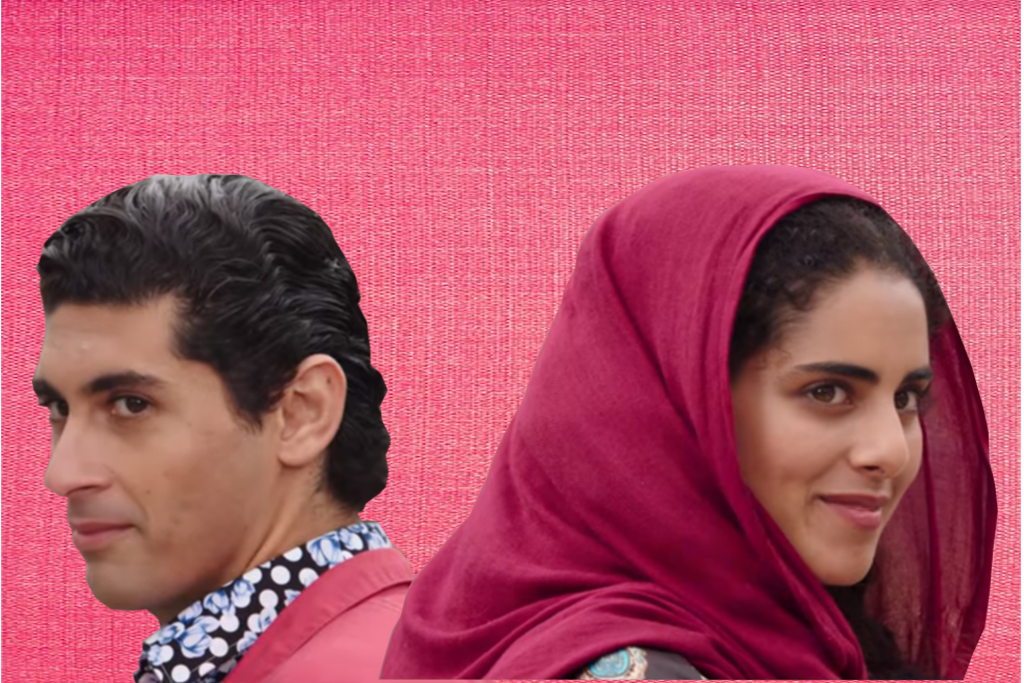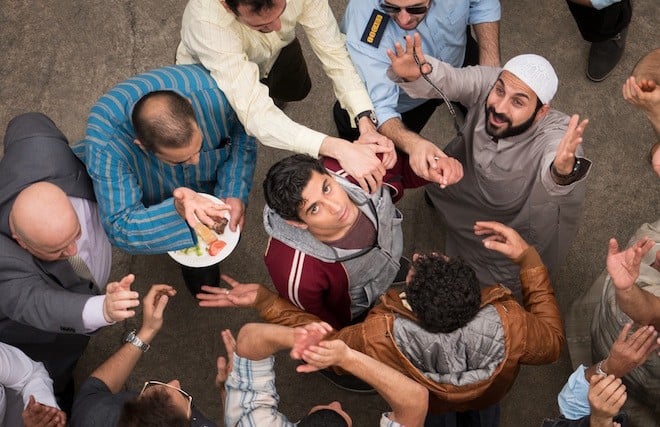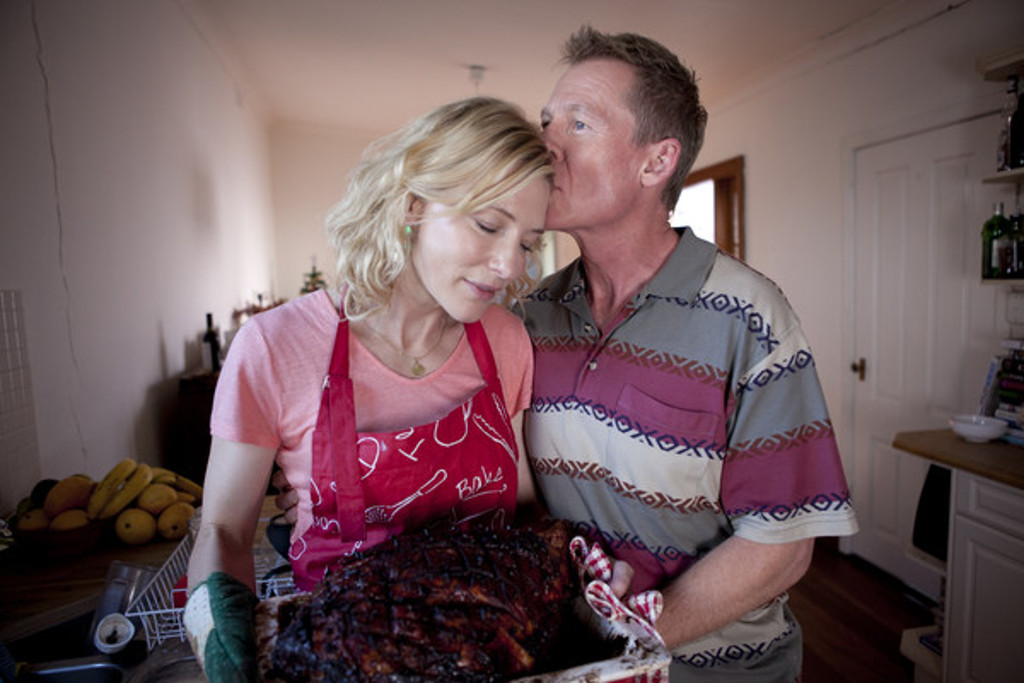‘Ali’s Wedding’ Is A Glorious Antidote To Australia’s Depressing Film Problem
It's not just a cinema seat filler; it's the future of Australian film.

This review is from our coverage of the Sydney Film Festival 2017. Read more here.
–
Osamah Sami, the star of Ali’s Wedding, can go from steely solemnity to cheeky charm in a split second. One minute he’s pratfalling off a tractor, and the next he’s sharing a sincere, tear-jerking scene with his on-screen father (the divine Don Hany). But it all fits. Actually, it doesn’t just fit, it works beautifully.
Ali’s Wedding is being billed as the first Muslim rom-com in Australia (if you don’t count 2015’s Alex & Eve, I guess), and it balances on a knife’s edge throughout its entire, thoroughly enjoyable runtime. With a lot of precarious elements jumbled together — Muslim family drama, rom-com hijinks, “white lie” comedy and Saddam Hussein musical (no, really) — it could be a disaster. Instead, it’s the best rom-com I’ve seen in years (probably since 2014’s Obvious Child) and possibly the best Australian movie in decades.
Sweet, charming and irrepressibly funny, Ali’s Wedding essentially solves Australia’s depressing film problem, and chips away at our audiences’ unshakeable cultural cringe in one fell swoop. It’s not just a cinema seat-filler; it’s the future of Australian film.
Australia’s Australian Film Problem
It’s no secret that Australian cinema has an audience problem. Local films, no matter how brilliant they are, very often struggle to put bums on seats. For my money, this is a two-pronged issue. First: Australia has a well-defined sense of cultural cringe when it comes to content made at home (which Aussie TV is only just starting to overcome). And second: Australian films tend to be, for the most part, of the dour and depressing variety.
This doesn’t mean they are bad, exactly — although there are certainly plenty of bad and depressing Australian films on record. However, it does mean they are a tough sell for audiences paying nearly $25, and devoting an entire evening to a darkened cinema that smells of stale popcorn.
Of course there are a lot of great depressing Aussie films: last year’s The Daughter, for example, starring the wonderful Odessa Young and the perilously handsome and talented Ewen Leslie. Or the iconic Lantana, which was a striking and well-received vehicle for 1990s mega-stars Anthony LaPaglia and Kerry Armstrong. And, to be fair, in recent years Australia has not done terribly well with the light comedy output either. There’s the painfully awkward Any Questions For Ben?, bland rom-com I Love You Too and the mind-numbingly dopey A Few Best Men (starring the otherwise delectable Xavier Samuel).
But Australian filmmakers are some of the best, brightest and most experimental in the world. And frequently our best filmmakers (The Babadook’s Jennifer Kent, for example, or Muriel’s Wedding director PJ Hogan) and actors (Cate Blanchett, the Hemsworths, Rose Byrne and Joel Edgerton, to name a few) cross the ocean to find better opportunities and more recognition elsewhere. When Junkee spoke to actor Ben Mendelsohn about his success in Hollywood, he admitted, however grudgingly, that “it does seem to a degree like, when you go and work overseas, you really get celebrated a bit more here”.
Ali’s Wedding is light, funny, sincere, romantic and underpinned by that distinct Aussie larrikinism that we find so irresistible.
So perhaps it’s not quality but reception that’s the issue with Australian cinema. And Aussie folk do have a rather pronounced sense of cultural cringe, particularly when it comes to our film and television content. I can recommend brilliant and groundbreaking Australian shows (that are worlds better than some of the US garbage we mainline) until I’m blue in the face, but the sound of an Aussie accent on a screen, or the ABC logo in the bottom corner will put off many local viewers.
Considering all this, and the pronounced distaste for anything Muslim-related that your average casually xenophobic Australian has, by all rights Ali’s Wedding should be box-office poison. But I have the distinct feeling it won’t be, because the film itself is just so bloody undeniable. It genuinely overcomes all the obstacles that Australian screen content faces, simply by being just that good. It takes its lead from treasures like Muriel’s Wedding, Looking For Alibrandi and The Dressmaker — successful, beloved Aussie films that riffed on the distinct Australian fear of belonging that’s begat by our “mateship” mythology.
The film’s defined sense of self — and its lack of pretension — quashes our national screen body’s penchant for depressing and cringily “Aussie” content with a winning no-nonsense, all-nonsense sensibility. Light, funny, sincere, romantic and underpinned by that distinct Aussie larrikinism that we find so irresistible, Ali’s Wedding is perhaps the perfect Australian movie.
The Irresistible Charm Of Ali’s Wedding
“My dad has a saying,” Ali (Sami) tells us, “a lie begins in the soul, and then travels the world”. This is certainly the case in Ali’s Wedding, when Ali tells his family and the community at his local mosque that he achieves a score high enough to study medicine at Melbourne University — despite practically failing his entrance exams. (Or, as his sister puts it, “You’ve just told the biggest lie in the world!”)
To keep up the pretence, Ali attends classes at the uni anyway, which is where he meets Dianna (luminous newcomer Helana Sawires), A young Lebanese Muslim woman who was born in Australia, and is therefore unsuitable, in his mother’s eyes at least, for Ali to court. As the lies twist together and grow bigger, Ali struggles to keep his secret about university, as well as his secret desire for Dianna, under wraps.
The film beautifully weaves together a number of different, delicately written stories. There’s the ridiculousness of Ali’s fake university career; and the muddled joy and pain in his family, still suffering after a death years earlier. There’s the social politics of the mosque Ali’s family attends, at which his father (Hany, nowhere near old enough to play Sami’s father) is a cleric; and there’s the “arranged-marriage” hijinks, which has become somewhat of a trope in ethnically diverse romance films — you’ll likely recognise the story here as similar to the aforementioned Alex & Eve, My Big Fat Greek Wedding, and upcoming film The Big Sick.

I loved the politics of the mosque, with fine, resonant in-jokes about what it’s like to be a Muslim living in Australia right now. But the film’s strength is absolutely the romance between Ali and Dianna. Sami is a rather charming and irresistible lead, and Sawires is sweet, clever, feisty and adorable as Dianna. Together they are a couple worth rooting for, which is no small feat considering the state of the rom-com right now, with studios abandoning or diluting the form, and directors refusing to match leads for chemistry over status.
It’s not easy to make a good rom-com these days, especially one that centres on gentle romance as opposed to steamy sex. The “sex comedy” (Friends With Benefits, Bachelorette, Trainwreck, Love And Other Drugs and Sleeping With Other People) has overtaken the rom-com in public interest. The fact that Sami and Matchbox Pictures (helmed by Australian film giant Tony Ayres) have gambled with a rom-com, and one that resolutely eschews sex as a central theme, is rather impressive.
But the film works so well as a courtship romance — like a kind of modern, Muslim update on the “comedies of manners” penned by Jane Austen and later by Georgette Heyer. Considering how perennially popular Austen novels are to recreate on screen, Ali’s Wedding‘s fresh take on the genre feels like an especially shrewd move on Sami’s part. Apart from anything else, Sami and Sawires are just adorable together.

In the end, that’s how the film feels: shrewd and sweet, bursting with heart. And that’s what also makes it the future of Australian cinema. We can’t focus all our creative efforts (and public money) on dour artsy films anymore; but it doesn’t follow that the money should go to “mainstream” crowd-pleasers, either. Ali’s Wedding sits right in the middle.
Matching clever concept with sharp writing and fresh faces, as well as a truly excellent, evocative wacky “hijinks” score, Ali’s Wedding is a wonderful, sophisticated film that should appeal to the swathes of local viewers searching for something to tug at the heartstrings, bust the gut, and make for a satisfying night out at the movies.
–
Ali’s Wedding is screening at Melbourne International Film Festival in August, and in cinemas from August 31.
–
Matilda Dixon-Smith is Junkee’s Staff Writer. She tweets at @mdixonsmith.
–
Love film and TV? We’re holding our inaugural Video Junkee festival in July, a new annual event for lovers and creators of online video. Video Junkee is on July 28 & 29 at Carriageworks in Sydney, featuring keynotes, masterclasses, screenings, interviews and more. Tickets are on sale now.
